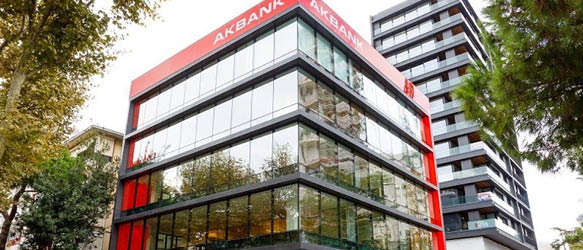Due to Polish regulations on takeover offers for publicly traded companies, public to private transactions now carry a heavier risk of failure, understood as the inability to delist the company from the exchange. The bid for shares of TIM S.A., recently extended until 6 December 2023, may be a case in point. Any investor who gets involved in a tender for shares of a listed company needs to ponder the risk that, once the transaction is finalised, they will acquire a controlling stock in a listed company, which may still be subject to a restricted trading regime applicable to public companies for quite some time.
At present, some pending takeover bids may end up with the delisting of major companies listed on the Warsaw Stock Exchange. Along with the bid for shares of TIM S.A., we are now witnessing the final stage of delisting the shares of STS Holding (the shares have been unlisted since 5 October) or Alumetal, which the Polish FSA agreed to delist on 28 November 2023. A forced buyout for the stock of Ciech was launched on 17 November 2023 by its leading shareholder, KI Chemistry, bringing an end to the series of bids for these shares. Despite a legal dispute between its shareholders, Kernel Holding is now close to delisting as well. A bid aimed at delisting the company was also announced by the key shareholders of Newag. The press estimates the total value of entities which may soon disappear from the Warsaw Stock Exchange at PLN 16 billion.
As next bids are announced under the regulations that were introduced last year, the market becomes increasingly better at identifying any corresponding constraints. In general, two rules notably shape the takeovers of public companies made with the goal to subsequently withdraw from public trading and remain determinant for the transaction: the first sets forth how possible conditions precedent for the acquisition of shares can be defined under the bid, and the other defines the maximum deadline for accepting bidding subscriptions.
In order for the process to run smoothly and to achieve its intended goal, the investor should purchase shares representing at least 95% of voting rights in the company, as this is the threshold that will allow them to squeeze out the minority shareholders. The tendency is now quite perceptible in the Polish market. Since the entry into force of the new regulations, some bids have been made where the bidder failed to eventually secure 95% of the votes at the general meeting of shareholders and the company kept its listing status, temporarily. As a matter of fact, even a substantial price premium is often not enough for the bidder to always successfully achieve their intended transaction goal, and legal requirements may become a hurdle. This was the case in the first bid for the shares of TIM S.A.; shortly before the end of the acceptance period (already extended once), the Office of Competition and Consumer Protection (UOKiK) made the decision to prolong its antitrust proceedings by 4 months.
In the aforementioned case, no extension for the voluntary bid is possible under the existing legal framework, and the offer acceptance deadline may not be extended as required to get the relevant consent from the regulator by more than 120 days in total. As a result, because the UOKiK proceedings were prolonged, one of the bidding conditions could not be met, which then prevented the intended transaction from successful closing. The offer ended without any shares being acquired.
Less than a month after the condition under the first bid was not met, FEGA & Schmitt Elektrogroßhandel GmbH announced a new, same-price tender for the shares of TIM S.A., and the bid was recently extended until 6 December 2023. The bid was made under the condition that the antitrust authorities approve the transaction. The investor now stresses that they are in an on-going conversation with the UOKiK and that they are fully cooperating with the Office.
Any circumstances which are beyond the control of the investor or the company itself, for instance the obligation to get the antimonopoly consent or lengthy administrative proceedings, should not be an obstacle to running a bid, and the bidder should have the option to extend its deadline until the regulatory proceedings are over. If one needs to make a new bid in order to address legislative constraints, one also needs to redetermine the bid price, in line with the requirements set forth in the legislative act. This situation proves unequivocally that the rules on takeover bids are not flexible enough.
One more issue may make voluntary bids intended for delisting less effective, namely the requirement to define the minimum number of shares under the bid which, once reached, will impose on the investor the obligation to acquire the shares covered by the bid. The minimum threshold for shares acquired under the bid, which includes shares already held by the investor, cannot not be set at more than 50% of the total number of votes at the general meeting. It's worth noting that the threshold which allows the investor to perform the squeeze-out of minority shareholders is at 95% of votes.
The spread between the respective thresholds – 50% and 95% of votes – is very big, and the risk that after the acquisition of shares the investor will be a holder of a listed company is similar. In other words, the investor needs to ponder that risk when they enter the transaction.
Said regulations negatively affect the possibility of acquiring majority shareholdings in public companies and require investors to devise a multi-stage acquisition plan when they eventually aim for delisting. The same applies to larger companies which may be subject to quite complex antitrust proceedings or are covered by a specific regulatory regime. Here, the investor also needs to recognise that the transaction may not be finalised under a single bid, and that a new bid will need to be made under the new conditions. For this reason, it is vital to prepare an adequate transaction structure to help the investor get closer to their intended goal, in other words, the delisting of the company.
Over the last five years, more than 80 companies have been delisted from the Warsaw Stock Exchange. Furthermore, the number of successful bids for shares has decreased in recent years; in 2020, there were 30, in 2021 the number was reduced to 28, subsequently dropping in 2022 to only 21.
By Marcin Pietkiewicz, Partner, and Katarzyna Jaroszynska-Lewand, Senior Associate, Wolf Theiss

















